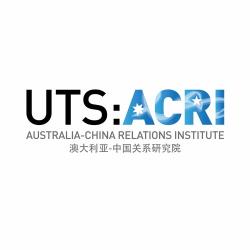The term ‘Indo-Pacific’ is increasingly used by Australian academics and policymakers to describe the region in which Australia is located. It is often argued that with China’s – and Asia’s – growing economic importance to Australia, the country faces an identity crisis as it comes to terms with its geographical position, as well as its historical status as a British colony and current role as an ally of the United States. How has Australia responded to China’s rise? What are Australian attitudes towards Asian regionalism, and how do they compare with China’s? Might Australia become a member of the Association of Southeast Asian Nations (ASEAN)? How likely is the formation of a quadrilateral security arrangement (‘Quad’) with the US, Japan and India?
He Baogang, Alfred Deakin Professor and Chair in International Relations at Deakin University, joins Bob Carr, Director of the Australia-China Relations Institute (ACRI) at the University of Technology Sydney, to discuss Chinese and Australian approaches to Asian regionalism, and the need for innovative Asia policy.
Guest: He Baogang, Alfred Deakin Professor and Chair in International Relations, Deakin University
Host: Bob Carr, Director, Australia-China Relations Institute, University of Technology Sydney
The term ‘Indo-Pacific’ is increasingly used by Australian academics and policymakers to describe the region in which Australia is located. It is often argued that with China’s – and Asia’s – growing economic importance to Australia, the country faces an identity crisis as it comes to terms with its geographical position, as well as its historical status as a British colony and current role as an ally of the United States.
How has Australia responded to China’s rise? What are Australian attitudes towards Asian regionalism, and how do they compare with China’s? Might Australia become a member of the Association of Southeast Asian Nations (ASEAN)? How likely is the formation of a quadrilateral security arrangement (‘Quad’) between Australia, the US, Japan and India?
He Baogang joins Bob Carr to discuss Chinese and Australian approaches to Asian regionalism, and the need for innovative Asia policy.
The Australia-China relationship is increasingly characterised by securitisation on both sides. The Australian government tends to securitise all Chinese activity in the country, while the Chinese government has a tendency to emphasise the security implications of Australia’s foreign policy actions.
Australia has not been fully committed to integration with Asia as a whole. Some countries do not consider Australia part of the region, and work needs to be done to change perceptions about Australia’s place in the world.
It is possible for Australia to become a member of ASEAN. On one level, existing members could welcome the addition of Australia as a measure to strengthen the organisation’s collective power, and act as a counterweight against a rising China. Australia’s membership could give small middle powers a greater voice in the region, which is currently dominated by China and US narratives. In Canberra, however, the notion of joining ASEAN is viewed with some scepticism, as it would require coming out of the US embrace to some extent, and committing to an association that includes some partners whose political systems and values may not be entirely compatible with Australia’s.
It is unclear what contribution the proposed Quad can make. This grouping reflects the proposed members’ focus on the Indo-Pacific, which is a ‘big picture’ idea. China’s Belt and Road Initiative, on the other hand, offers concrete outcomes in the form of infrastructure development and cooperation. Developing policies that would make a difference on the ground may be a more effective approach to balancing China’s influence in the region.
Theme music by Sam J Mitchell.


